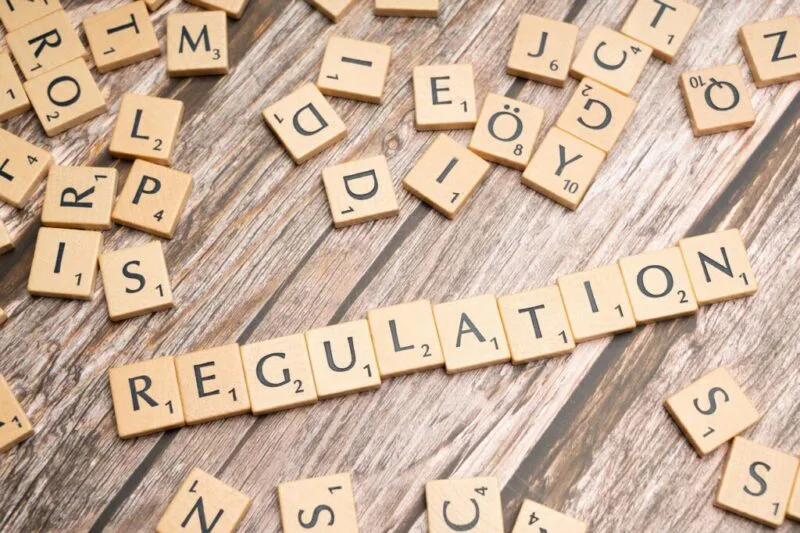Regulatory Compliance Consulting for Boards: Risk, Proof and Readiness

Regulations move faster than most internal processes. Boards and executives are asked to sign off on certifications, disclosures and reports that carry personal and corporate risk. This article explains how regulatory compliance consulting supports that responsibility by helping organizations see their exposure clearly, improve control design and maintain evidence that programs work in daily operations.
Key ideas for boards and executives
- Regulatory compliance consulting is most valuable when it links rules to real business decisions, not just to checklists.
- Effective work combines risk assessment, control design, testing and remediation into one program, rather than treating them as separate projects.
- Boards should expect traceable evidence that compliance programs function in practice, not only policies and slide decks.
Why regulatory compliance consulting is on the board agenda
In recent years, regulators and enforcement bodies have raised expectations for how companies manage risk. Guidance from agencies such as the
US Department of Justice
and the
US Securities and Exchange Commission
emphasizes that boards and senior leaders are expected to understand how compliance programs operate, not just sign documents.
At the same time, new rules on privacy, cyber, financial crime and sustainability add more requirements on reporting and controls. Many organizations have legacy policies and training, but less clarity on whether those measures still match current rules or how they work across borders.
Regulatory compliance consulting helps leadership teams answer three simple questions in a disciplined way:
- Where are we exposed today and what would failure look like.
- What controls and behaviors are needed to manage that exposure.
- How do we show, with evidence, that these controls work in practice.
NMS Consulting approaches this topic from both risk and performance angles, drawing on work in
strategic management consulting services
and
change management consulting services
to make sure compliance programs are practical for frontline teams as well as legally sound.
Preparing for a regulatory review or board session on compliance and want an independent view of your current program.
Core regulatory compliance consulting service lines
Regulatory compliance covers many subjects, from financial reporting and anti corruption to privacy and cyber. Consulting support is usually grouped into a few service lines that can be combined as needed.
Program assessment and gap analysis
This work reviews existing policies, procedures, controls and reporting against applicable rules and leading practices. Consultants may use public references such as
Department of Justice guidance on evaluating corporate compliance programs
or standards such as
ISO 37301 on compliance management systems
alongside sector rules. The output is a structured view of strengths, gaps and priorities.
Policy, procedure and control design
After the assessment, organizations often need to refresh policies and procedures so that they are clear, current and realistic for staff. Regulatory compliance consulting teams help write and align documents, map them to control activities and define ownership. For many clients, this work connects directly to other NMS offerings such as
risk management consulting services.
Monitoring, testing and continuous improvement
Regulators expect ongoing monitoring, not one time projects. Consultants help set up compliance monitoring plans, test scripts and reporting routines that draw on both sample based reviews and data driven monitoring. Over time, these routines feed into dashboards that make emerging issues visible.
Regulatory change management
Rules change frequently, especially in areas such as financial services, data protection and environmental reporting. Regulatory compliance consulting can include a structured process for scanning for new rules, assessing impact, updating controls and informing affected teams.
Training, culture and speak up channels
Written policies are not enough. Employees need to understand expectations and feel able to raise concerns. Consultants help design targeted training plans, support managers with talking points and review reporting and escalation channels. This often runs in parallel with projects covered in NMS articles on
strategies for managing organizational change.
Remediation and lookbacks
When an issue or investigation occurs, boards may commission a lookback to understand scope, impact and required fixes. Compliance consultants support root cause analysis, remediation plans and communication with regulators, sometimes working alongside legal counsel and internal audit.
How needs vary by industry and jurisdiction
Compliance questions differ between sectors, but certain themes repeat. Understanding these differences helps shape the right consulting support.
- Financial services often focuses on conduct, anti money laundering, capital and liquidity, and product governance. Rules can differ by country, so cross border coordination is critical.
- Healthcare and life sciences face close scrutiny on patient safety, data privacy and promotion. Compliance programs must account for clinical processes and complex partner networks.
- Manufacturing and energy companies manage environmental, health and safety rules alongside trade, sanctions and supply chain obligations.
- Technology and digital businesses deal largely with privacy, cyber security and consumer protection, often drawing on guidance from organizations such as
NIST.
Regulatory compliance consulting engagements at NMS are tailored to these sector realities while still following a consistent method for risk assessment, design and testing.
Typical shape of a regulatory compliance engagement
While each assignment is different, many regulatory compliance consulting projects follow a clear pattern. The table below shows a common structure for a six to nine month engagement.
| Stage | Main focus | Typical outputs |
|---|---|---|
| Diagnostic | Understand obligations and current program | Obligation map, document review, interviews, gap analysis |
| Design | Agree target state and priorities | Compliance risk appetite, target operating model, prioritized roadmap |
| Build | Update policies, controls and reporting | New or updated policies, control library, monitoring and testing plan |
| Implement | Roll out changes and train staff | Implementation plans by function, training materials, communication packages |
| Review | Test effectiveness and refine | Test results, remediation actions, steady state compliance calendar |
For some clients, NMS combines regulatory compliance consulting with
change management consulting services
to handle the people side of new rules, and with
technology and digital transformation support
when new systems are required.
Questions to ask before choosing a compliance consulting partner
Selecting the right partner is critical, since consultants work closely with legal, risk, finance and operations teams and may interact with regulators. Boards and executives can use questions such as these when making a choice.
- Do they have recent experience with the regulators and rules that matter most to us.
- Can they provide examples of programs that were tested by regulators or auditors and found to be effective.
- How will they work with our legal, internal audit and risk teams to avoid overlap or gaps.
- What is their approach to knowledge transfer so that our internal teams can run the program after the project ends.
- How will they help us balance compliance with commercial goals rather than slowing the business unnecessarily.
These questions apply whether you are working with a large global firm or a specialist boutique. Several NMS resources, including
management consulting solutions guide 2025,
highlight how to set up consulting projects so that accountability and results stay with the client leadership team.
Planning a regulatory review, new license application or major rule change and want to test whether your current compliance program is ready.
Frequently asked questions
What is regulatory compliance consulting?
Regulatory compliance consulting helps organizations understand their obligations, design and test compliance programs, and prepare credible evidence for regulators and other stakeholders. Consultants support activities such as risk assessment, policy design, control testing, remediation and regulatory change management.
When should a company hire regulatory compliance consultants?
Compliance consultants are especially useful when rules change quickly, when an organization operates across several jurisdictions, or when there is concern about past practices. They can also help during rapid growth, mergers, investigations or when a board wants independent assurance that programs work as intended.
How do you measure the impact of regulatory compliance consulting?
Impact is measured by reductions in incidents, findings and enforcement actions, as well as improvements in control test results, audit outcomes, issue remediation speed and staff understanding of key obligations. A good engagement defines these measures at the start and tracks them over time.



